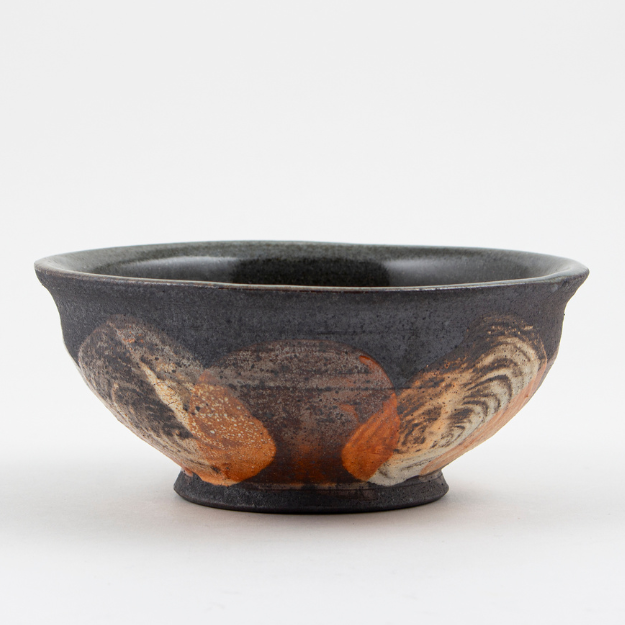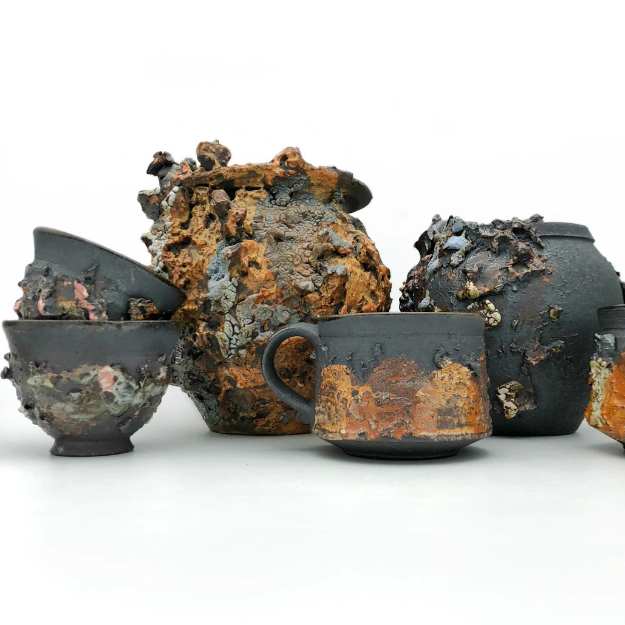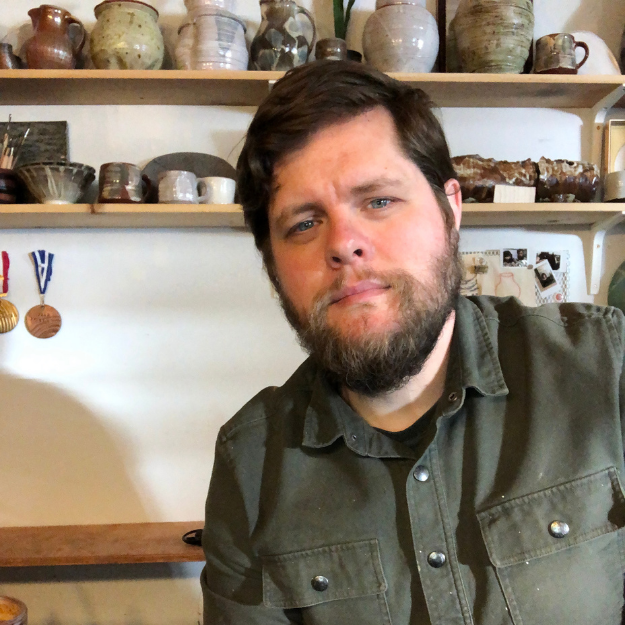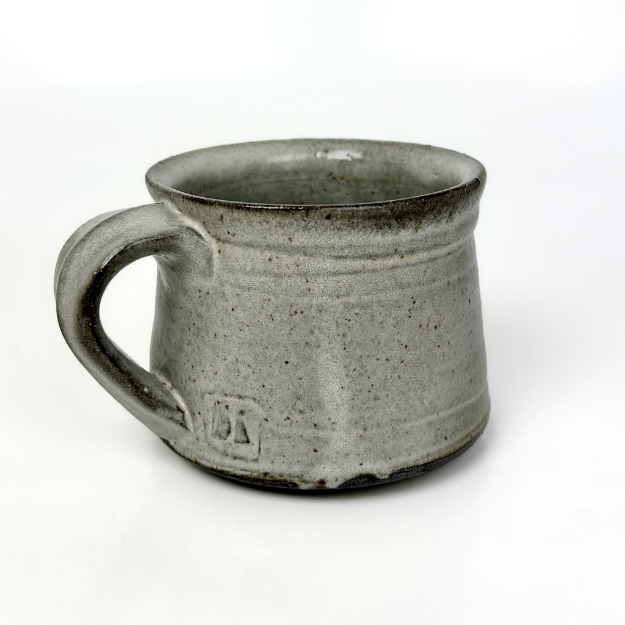Daniel Labutes
Available at the Alberta Craft Gallery - Edmonton & Calgary
Daniel Labutes is a former professional chef turned studio potter living in Medicine Hat, Alberta where he works as the Studio Technician for the Medalta International Artist in Residence program. He graduated from the Alberta University of the Arts in 2019 with a BFA in Ceramics with Distinction. His work is primarily functional and explores the concept of unconventional conventional objects. They are made with a combination of wheel thrown and handbuilding techniques.
I make vessels that wish for more than admiration – they expect to be used and interacted with, and come alive through a sense of purpose. I make them to be comfortable, practical, and attractive articles of the home. My inspiration for how I work and create comes from the ideals of the Mingei movement in Japan, the philosophies of wabi-sabi, and the mountainous landscapes of southern Alberta. My pots are approachable and minimal in form and decor, I emphasize their handmade qualities: they lean; they are bumpy, and they show fluidity of movement.
I make my work using a combination of wheel-thrown and handbuilding methods. This combination of methods enables me to emphasize their handmade nature and to provide a more interesting texture and surface. After creating the body of my piece, I apply slips and grog to create a tactile surface and to allow the accumulation of soda and glaze drips. I fire my work in atmospheric kilns, using flashing slips and layered glazes.
Some might consider the making of functional pottery in the 21st century to be a subversive choice. If there is no practical need for my wares and no void in the production of cheaply-made and mass-manufactured pots; then my work is a gentle rebellion against the machine of progress.
In the landscape of innocuous and mass-produced functional wares, I am making unconventional conventional objects hoping to be accessible alternatives in the view and consciousness of contemporary society. They connect and celebrate the sense of respect between the modern maker and consumer. These vessels hope to have purpose: to be used, to be interacted with, to be experienced, and to live among us in our homes as cherished objects.




